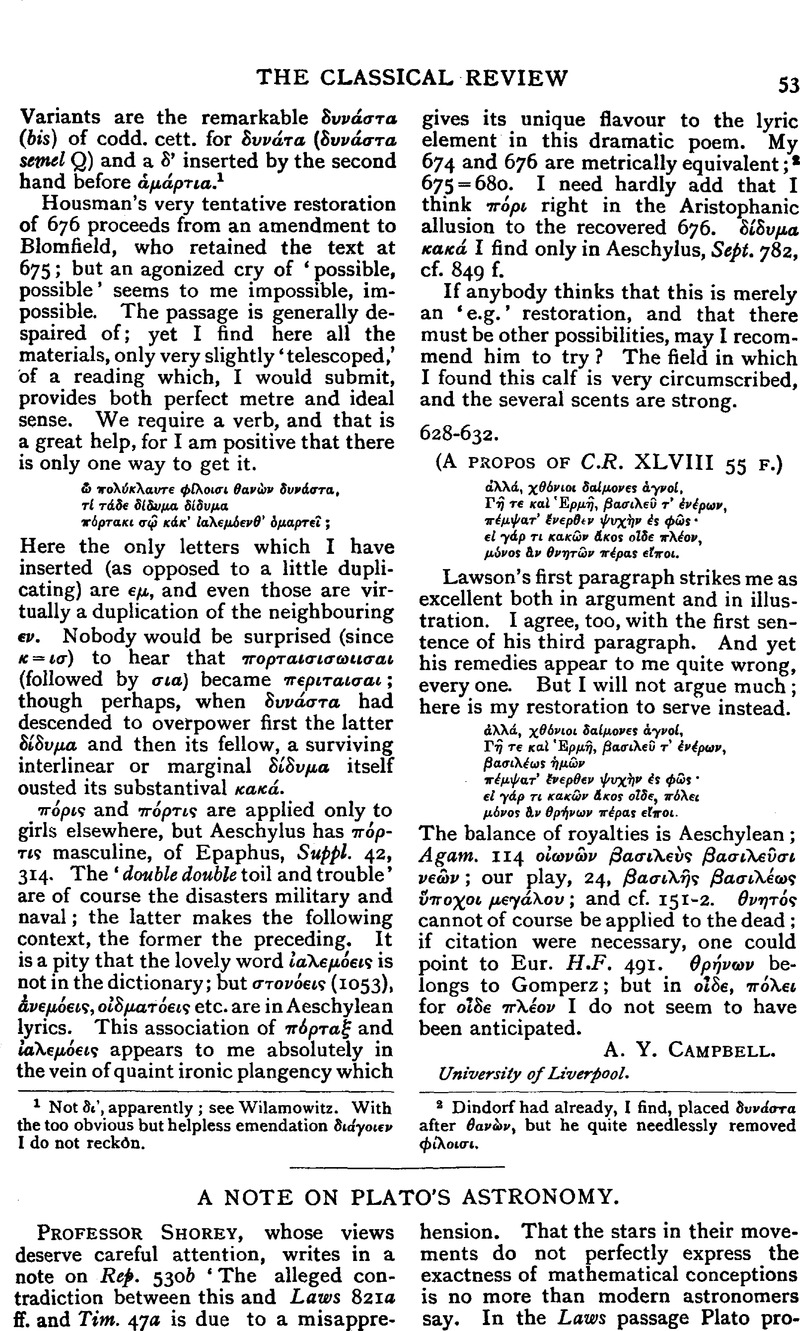No CrossRef data available.
Published online by Cambridge University Press: 27 October 2009

page 54 note 1 Professor Shorey's references have been either misprinted or unfortunately chosen. The really pertinent references, as what follows will show, are Laws 822a 6–8, Timaeus 40b 8–c 2. Whether the two later dialogues are in accord with the Republic depends entirely on the questions (1) what is meant in the former place by ![]() , (2) and how we read and translate in the second the words
, (2) and how we read and translate in the second the words ![]() . To say that Plato had always held that a planet has really a regular orbit is merely irrelevant.
. To say that Plato had always held that a planet has really a regular orbit is merely irrelevant.
page 55 note 1 Compare the way in which Simplicius (on de Caelo 2926 24) opens his account of Eudoxian theory, ![]() . It is precisely this which the laws denies totidem verbis.
. It is precisely this which the laws denies totidem verbis.
page 56 note 1 Let me point out an unfortunate oversight in Shorey's note on Rep. 617a. Burnet is quoted for the view that the orbital revolution of the planets in a sense counter to that of the ‘diurnal rotation’ was unknown to the Pythagoreans and is probably a discovery of Plato. The quotation comes from the second edition of Early Greek Philosophy, p. 123, and Shorey forgot that in the third edition (p. 110) Burnet expressly withdrew his statement, and said that the doctrine may be ascribed ‘probably to Pythagoras himself,’ and is in any case pre-Platonic. The circumstances in which Shorey's volume was compiled make the error very excusable, but it should not go uncorrected.